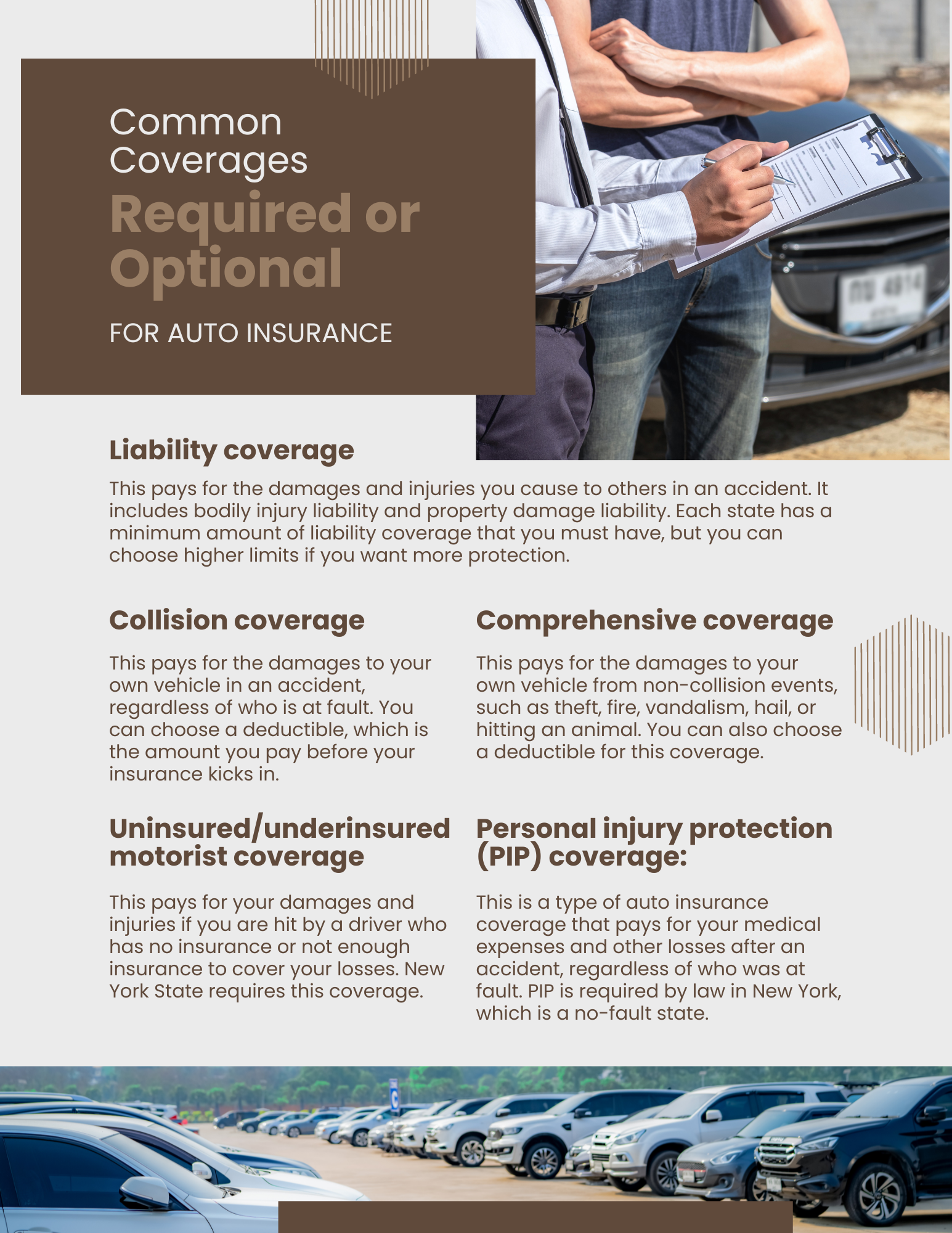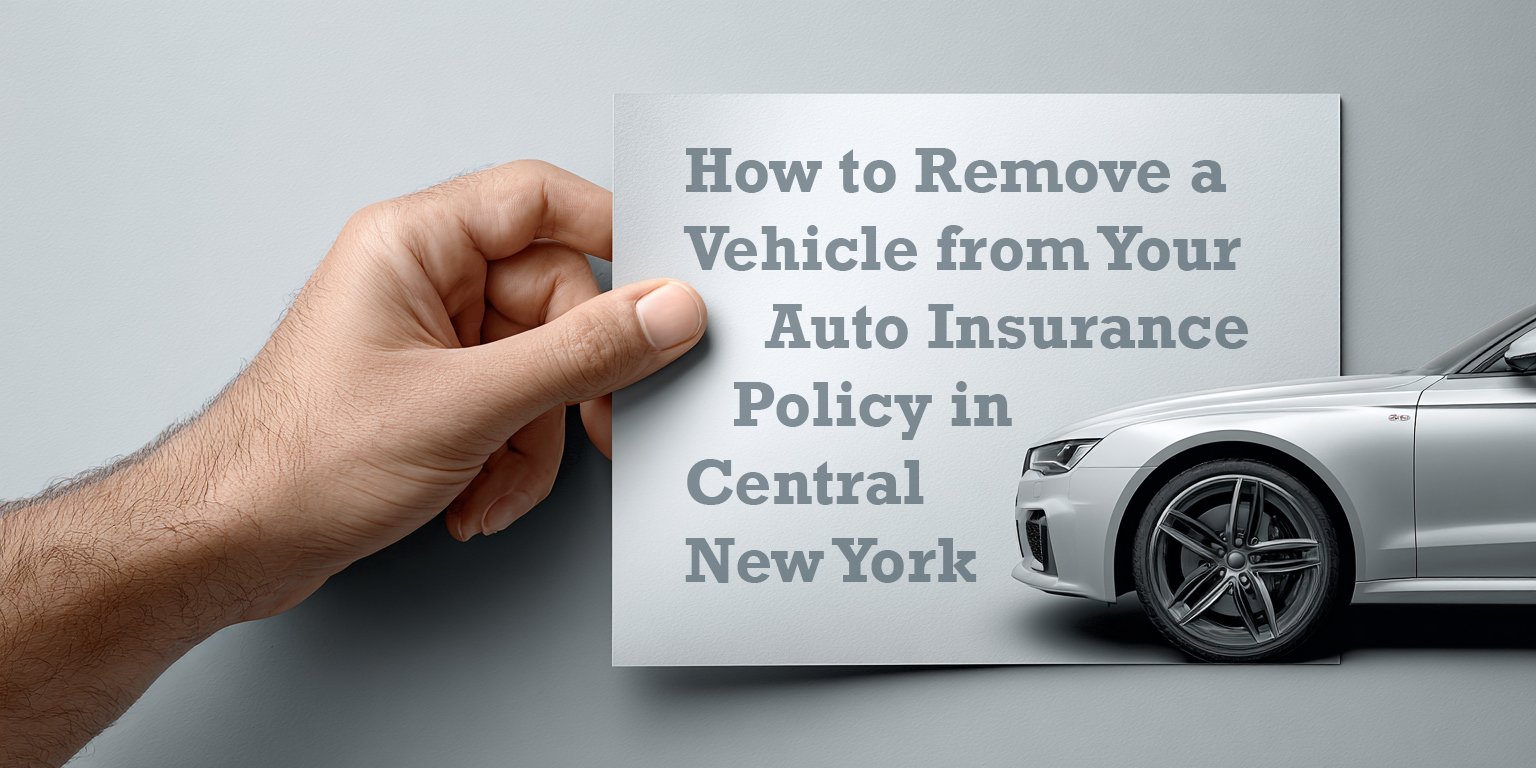Auto Insurance Quotes: Six-Month vs. Twelve-Month Policies
September 11th, 2023
4 min read

Auto insurance is one of those things that you need but don’t want to think about. You want insurance protection in case of an accident, but you don’t want to pay more than you have to. You want peace of mind but don’t want to deal with complicated paperwork and confusing terms.
That’s why you need a trusted partner who can help you find the best auto insurance policy for your needs. A partner who can explain the differences between six-month and twelve-month policies and help you decide which one is right for you. A partner who can save you money and time and make auto insurance easy and hassle-free.
That partner is Horan. We’re an insurance agency that has been serving Central New York for over 15 years. We work with top-rated carriers that offer six-month and twelve-month policies. So we have deep experience in this area.
In this article, we will explain the pros and cons of six-month and twelve-month auto insurance policies. We’ll show you how they affect your coverage and rates. We’ll also give you tips on choosing the best policy for your situation.
By the end of this article, you will have a clear understanding of the two policy term lengths. And you’ll know how to get the best value for your money.
The Pros and Cons of Six-Month and Twelve-Month Auto Insurance Policies
A twelve-month policy is the same as a six-month policy, except it lasts for a year.
There’s one big difference between six-month and twelve-month auto insurance policies. That difference is how often your rate can change. With a six-month policy, carriers lock in your rate for six months. So it won’t change until your next renewal. With a twelve-month policy, they lock in your rate for a year.
This can have advantages and disadvantages, depending on your situation. Here are some of the pros and cons of each policy type:
Pros of a Twelve-Month Policy for Auto Insurance Quotes:
You don’t have to worry about rate increases for a year. Your carrier can decide to raise rates. Six-month policies experience this first. The increase won’t affect your twelve-month policy until your next renewal.
You can save money by paying your premium in full upfront. Many carriers offer discounts for paying your annual premium in one lump sum rather than in monthly installments.
You also have an opportunity to reset discounts. Some discounts, such as defensive driving courses, expire after a certain period of time. If you have a twelve-month policy, you can renew your discount by completing the course within your policy term.
Consider this. You completed a defensive driving course three years ago. Your policy renewed in January, but the course expired in March. Some carriers will cancel your discount when it expires. Others, like Erie, will extend your discount and give you time to complete the course within your policy term. For those with 12-month policies, the benefit lasts longer because renewal is farther out.

Cons of a Twelve-Month Policy for Auto Insurance Quotes:
Paying 12 months in full upfront costs more than paying six months in full upfront. This requires budgeting and planning ahead. If you don’t have enough money to pay your annual premium at once, you may have to opt for monthly payments. This can incur fees and interest charges.
You may miss out on lower rates from other carriers. If you have a twelve-month policy, some carriers charge a cancellation fee if you switch before your policy expires. Many carriers won’t charge you for making an early switch. Be sure to ask your agent about the carrier’s cancellation policy.
How Claims Affect Your Auto Insurance Quotes
Another factor that can affect your auto insurance quotes is whether you have any claims on your record. A claim is a request for payment from your insurance company. It relates to damages or injuries caused by an accident or other event covered by your policy. Claims can have different impacts on your rate depending on the type and length of your policy.
Impact of Claims on Six-Month Policies:
- Your rate may increase sooner. If you have a claim during your six-month policy term, your carrier may increase your rate at your next renewal, which is only six months away. This means you will pay more for your coverage sooner than if you had a twelve-month policy.
- Your discounts may be canceled earlier. If you have a claim during your six-month policy term, your carrier may cancel any discounts you have on your policy at your next renewal. That’s only six months away.
- Your surcharges may be added earlier. If you have a claim during your six-month policy term, your carrier may add surcharges to your policy at your next renewal. Surcharges are extra fees added to your premium to reflect the increased risk of insuring you. This means you will pay more for your coverage sooner than if you had a twelve-month policy.
Claims can have different effects on your auto insurance rate. This will be reflected in your quotes and will depend on the policy length. That’s why it’s important to compare quotes from different carriers and policies. Then choose the one that suits you best.
The Availability of Policy Length May Matter to You
Your choice of different policy lengths from different carriers may have limits. Some carriers offer both six-month and twelve-month policies. Others offer only one or the other. This may help you narrow your carrier of choice based on their policy lengths.
Say you’re shopping for a new auto insurance policy. You want to find the best deal and coverage for your car and driving habits. You heard that some carriers offer both types of policies. Others offer one kind. You wonder how this affects your choice of carrier and policy.
So you contact an agency in CNY. They explain that your choice depends on your situation. Some of the factors that may influence your decision are:
- How often you want to shop around for lower rates or better coverage
- How stable your driving record and personal circumstances are
- How much you can afford to pay upfront or in monthly installments
- How likely you are to have a claim or a change in your discounts or surcharges
The agent helps you weigh the pros and cons of six-month and twelve-month policies. She shows you the options from different carriers. She also answers your questions with patience and precision. She verifies that you understand everything before you make a decision.
You’re impressed and feel confident you’ve found the best auto insurance policy for your needs. You sign up for your new policy and breathe easy.
Choose the Right Policy Length When Searching for Auto Insurance Quotes
Choosing the right auto insurance policy length can make a big difference in your auto insurance experience. It can affect how much you pay and how often your rate changes. The choice can also affect coverages based on renewal frequency.
That’s why you should consider the pros and cons of six-month and twelve-month policies with care. Then, compare quotes from different carriers and policies before making a decision.
We have the experience and expertise to help you find the best auto insurance policy for your budget and lifestyle. We can compare quotes and remove the confusion. We also offer personalized service and support.
Click the Get a Quote button below to get started. We’re ready to aid you in your search for the right auto policy.
And while you’re searching, click below to discover:
Daniel is an accomplished content creator. He has been working in publishing for almost two decades. Horan Companies hired Daniel as its content manager in November 2022. The agency entrusted its messaging to him. Since then, Daniel has written insurance articles, service pages, PDF guides, and more. All in an effort to educate CNY readers. He's helping them understand the world of insurance so they can make informed decisions.
Topics:



























